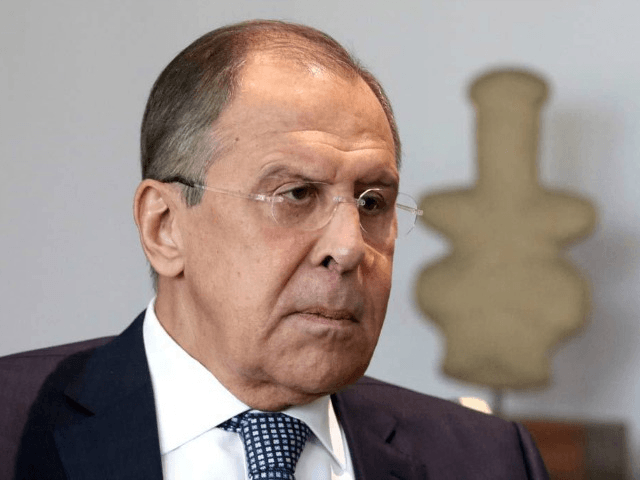Russian state media reported Thursday that an “extended Troika conference on Afghanistan reconciliation” would be held in Doha, Qatar, on Friday — the day before the May 1 deadline for American and NATO forces to withdraw.
The Biden administration says withdrawal is beginning but will not be complete until September, while the Taliban has threatened to resume hostilities against any personnel remaining after Saturday.
The “extended Troika,” sometimes known as the “Moscow Format,” is a reference to the four major powers that ostensibly have a stake in Afghanistan: the United States, Russia, Pakistan, and China, plus the Afghan government and the Taliban. The Russians are making an unusually direct bid to bring India into the Moscow Format as well, including a trip by Russian Foreign Minister Sergey Lavrov in early April in which he visited the capitals of both India and Pakistan to discuss Afghanistan.
Comments from Lavrov suggested Russia’s strategy is to bring India into a regional alliance on Afghanistan that would push NATO out of the equation. After visiting India for talks with its foreign minister Subrahmanyam Jaishankar, Lavrov said the Indians agreed any version of NATO involvement in Afghanistan would be “counter-productive.”
“We are interested in inclusive cooperation that is for something, and not against somebody,” said Lavrov, who outlined Russia’s view that only full Taliban investment in the government of Afghanistan could bring lasting peace.
The last Troika conference, held in Moscow on March 18, included an invitation for Turkey to participate, as well. Russia has invited 20 additional countries to participate in the current round of talks it is sponsoring, along with NATO, the United Nations, the European Union, and the Organization of Islamic Cooperation (OIC).
Russian special envoy to Afghanistan Zamir Kabulov said Friday’s meeting would involve “trying to work out a common position to give an impetus for the talks to take place,” so it is effectively a meeting to schedule another meeting.
The Taliban does not appear to be paying much attention to what happens at these meetings since everyone else involved in the extended Troika has stated they do not want the Taliban to launch a spring offensive, regain power over Afghanistan, or violate the rights of women and minorities. The Taliban remains palpably eager to do all of these things and says it will not participate in further negotiations until all foreign forces have been removed from Afghanistan.
Turkey also tried to restart Afghanistan negotiations with a conference that was to be held on April 20, but it was postponed until at least the end of the Muslim Ramadan holiday in mid-May when the Taliban declined to attend. Turkish Foreign Minister Mevlut Cavusoglu reportedly had a phone conversation with his opposite number in Afghanistan, Mohammad Hanif Atmar, on Friday to discuss restarting the “peace process.”
Afghan President Ashraf Ghani made his latest power-sharing offer to the Taliban in a televised speech on Wednesday, which marked the 29th anniversary of the defeat of the pro-Soviet Union regime that once ruled in Kabul.
“No one in Afghanistan can impose will on the people through war and violence, it is time for the Taliban to give up the war and turn to democratic mechanisms to share power,” Ghani declared.
“The success of jihad was due to harmony among the people and the national unity. Similarly, we can reach sustainable and just peace through a cohesive and unified voice,” Ghani said, referring to the “jihad” against Soviet invaders in the 1980s.
NPR noted Thursday that Taliban leaders have ostensibly tried to bypass all of these international conferences by offering direct talks to various Afghan officials, but according to the Afghan national reconciliation council, these were merely “efforts to create discord in the government.”
Anguished contributors to the NPR piece observed that the Taliban is waiting for U.S. and NATO troops to pull out so they can launch a major offensive against Kabul, either overthrowing Ghani’s government completely or murdering their way to a dominant position in “unity government” negotiations. If President Joe Biden had not postponed former President Donald Trump’s initiative to end the two-decade U.S. involvement in Afghanistan by May, a longer period of lower-intensity hostilities with the same ultimate goal was probably the best that could be hoped for. The U.S. is supposedly losing all of its “leverage” against the Taliban by leaving, but that leverage was only producing a slowly-eroding stalemate.

COMMENTS
Please let us know if you're having issues with commenting.